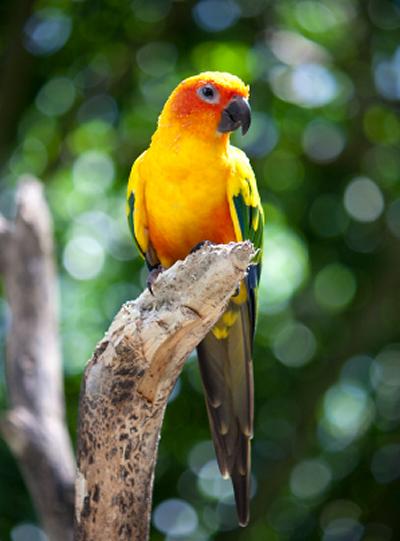Tips on Keeping Your Parrot Healthy

Food available in the wild changes on a seasonal basis and, therefore, what may be available now may not necessarily be available a few weeks later. As a result, wild parrots have learned to adapt to take this into account. Sadly, it is impossible for a parrot to follow a 'natural diet' whilst in captivity. However, there are a number of different things that you can do in order to ensure that your parrot remains well-nourished and, ultimately, leads a long and happy life.
Seed Based Diets
If you have a parrot, you are going to want to steer them clear of seed based diets. You see, if they eat just seeds, they are not getting the vitamins and the minerals that they need in order to thrive. Now, there are some people out there who will throw in a few pieces of fruit for good measure. However, you will find that your parrot only aims for the fruit and nothing else which is, of course, still not going to lead to good nourishment.
Pellets
Most parrot owners suggest that you opt for pellets for your pet. This is because, if you choose one specifically made for a parrot, it will be packed to the brim with all of the nutrients that they need in order to thrive. In addition to this, your pet is going to be forced to eat it all, so you know exactly what they are getting into their diet. However, you should not be taking your bird onto pellets right away. It is a low process because, if your bird is sent right onto pellets, there is a good chance they will not eat it. This means that you will need to monitor your parrot throughout the weaning process. This means checking its weight (it should not lose more than 1% of its body weight a week).
Fresh pellets should be given to your parrot every day. You should include a few pieces of fruit in the cage if you wish to do so. Your pet will then be able to consume these throughout the day. If not enough pellets have been consumed, you can give them their normal diet for thirty minutes at the most. Then, you can remove their normal food and leave them with their pellets.
It is important that you never opt for a pellet diet if your bird is already overweight or sick. This can have a huge impact on the health of the bird. Instead, let them recover first. For a healthy bird, you are probably going to be looking at a month to two months to get them on over to the new diet. So, you should constantly be monitoring your pet throughout the whole time.
At the minimum, your parrot should have 80% of their diet as pellets, cockatiels should have a 60% diet. The rest should be made up of dark fruits and vegetables. You may also wish to include some nuts and seeds for good measure.
For more information or to order a range of supplies or medicines for your pet, contact [http://www.medicines4pets.co.uk].
Copyright © 2008-2023 BirdSites.net. All rights reserved.
